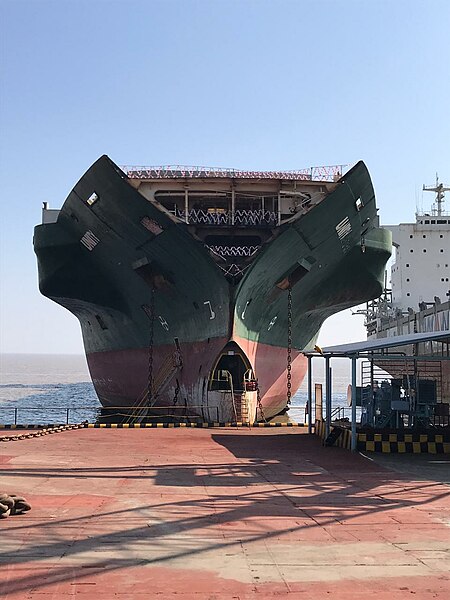Thos. W. Ward Ltd was a Sheffield, Yorkshire, steel, engineering and cement business, which began as coal and coke merchants. It expanded into recycling metal for Sheffield's steel industry, and then the supply and manufacture of machinery.
Bailey Bridge, erected in 2006 at the rear of Albion Works, Sheffield
Cement kiln 8, Ketton, Rutland
Early Thos. W. Ward Steel Girder
Albion Works 2013
Ship breaking is a type of ship disposal involving the breaking up of ships either as a source of parts, which can be sold for re-use, or for the extraction of raw materials, chiefly scrap. Modern ships have a lifespan of 25 to 30 years before corrosion, metal fatigue and a lack of parts render them uneconomical to operate. Ship-breaking allows the materials from the ship, especially steel, to be recycled and made into new products. This lowers the demand for mined iron ore and reduces energy use in the steelmaking process. Fixtures and other equipment on board the vessels can also be reused. While ship-breaking is sustainable, there are concerns about its use by poorer countries without stringent environmental legislation. It is also labour-intensive, and considered one of the world's most dangerous industries.
Removing steel plates from a ship using cranes at Alang Ship Breaking Yard in India
HMS Queen heeled over on the Thames foreshore off Rotherhithe, c. 1871
Dismantling of Redoutable in Toulon, 1912
Ship recycled in beaching method








